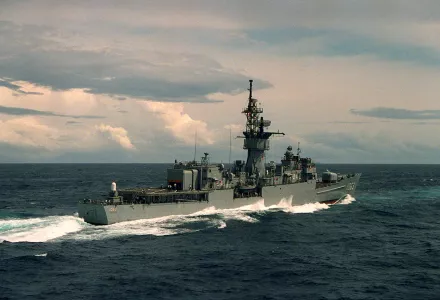
Abstract
From 1975 to 1990, Iraq and the US engaged in a relationship of mutual misunderstanding structured by the Cold War. As Saddam Hussein fixated on the threat of US conspiracies coordinated with Iran and Israel, American officials perceived Saddam Hussein as a pragmatist on the basis of Cold War logics. The end of the Cold War removed the conditions that allowed the two states' tenuous partnership. Drawing on Iraqi and US records, this article challenges the conventional view that containing Iran drove US-Iraq relations in the 1980s. It re-conceptualises Saddam Hussein as an actor enmeshed in Cold War geopolitics.
Forsberg, Carl. "Iraq, the United States, and the Long Shadow of the Cold War." Cold War History, vol. 19. no. 4. (2019): 457–476.
The full text of this publication is available via Cold War History.




